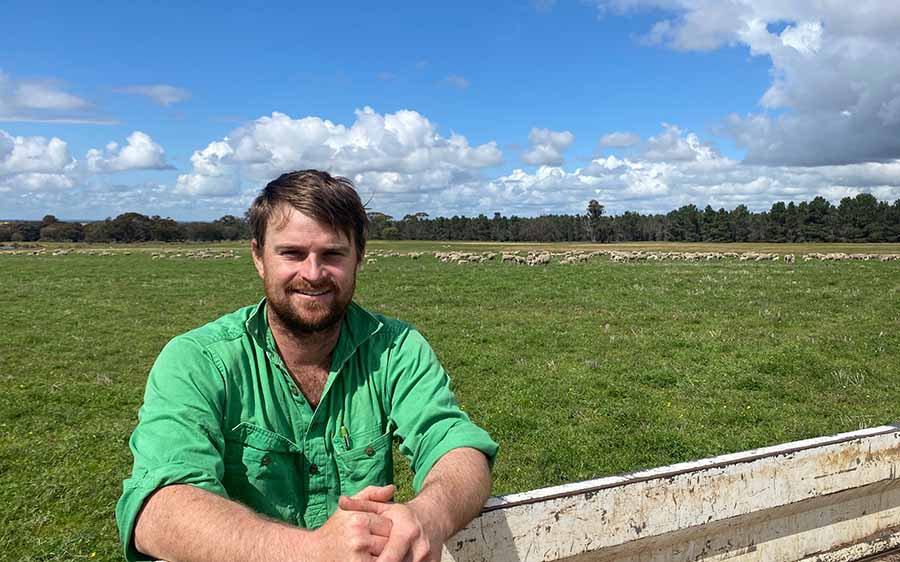
It's hardly a surprise that Hamish Thompson thrives on the opportunities that genetics can provide to address challenges in the Merino industry. After all, his father, David, has always been ahead of the game in terms of research and development in Merino genetics. And it seems the apple hasn't fallen far from the tree.
After going away to school in Perth, Hamish returned to the family's Western Australian property at Coyrecup to 'detox from city life' before taking up formal agriculture studies. That break, however, saw him take up shearing and working in the local saleyards, where his education was less formal but just as informative. He saw firsthand the massive variation in wool quality as he bent over sheep shearing, and he also saw the full gamut of sheep through his days moving stock through the yards. That, Hamish says, was an eye opener and ignited a passion to return home permanently and work with his father, who he pays tribute to as someone 'with an incredibly open mind and a willingness to change'.
'There are some people who think about change, but Dad is someone who does it,' Hamish says. And that sometimes attracts critics. The Thompsons are used to the sceptics and knockers, and Hamish says it almost acts as an extra incentive to prove them wrong. 'Back in 2009, Dad was one of the first to say that it was possible to join Merino ewe lambs at six to seven months and he copped flak for that,' Hamish says. It wasn't enough criticism to stop him from trying, however, and the Thompsons now have an 80-90% lambing rate for ewe lambs joined at just six to seven months, a figure that other Merino breeders can't even achieve in older ewes.
Their pioneering work in breeding Merinos that would not require mulesing is another key example of their can-do spirit. As was the adoption of Australian Sheep Breeding Values at a time when many traditional and well-known Merino breeders scoffed at their use.
Even though Hamish opted for shearing sheds over tertiary studies, that hasn't stopped him from developing a close relationship with Murdoch University in Perth. Researchers regularly make a beeline for Moojepin and have used the flock for a range of studies, with the latest work including measuring methane emissions from sheep. Hamish says the ability to rub shoulders with some of the best scientists and researchers in the world allows their enterprise to continually meet the challenges the industry faces.

